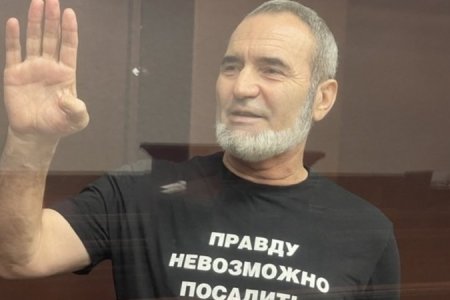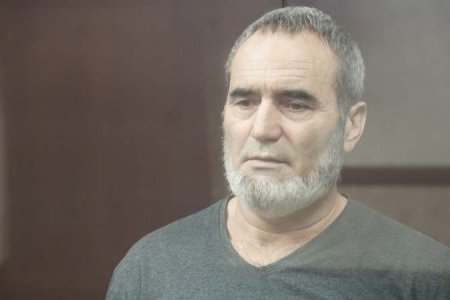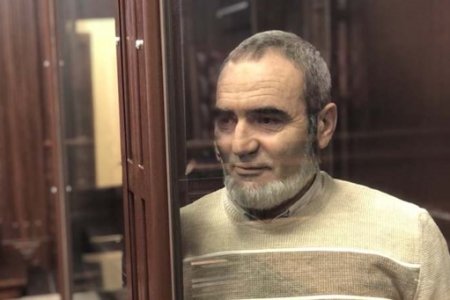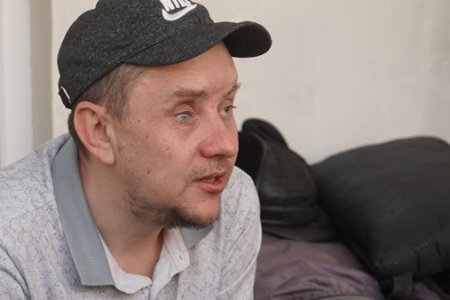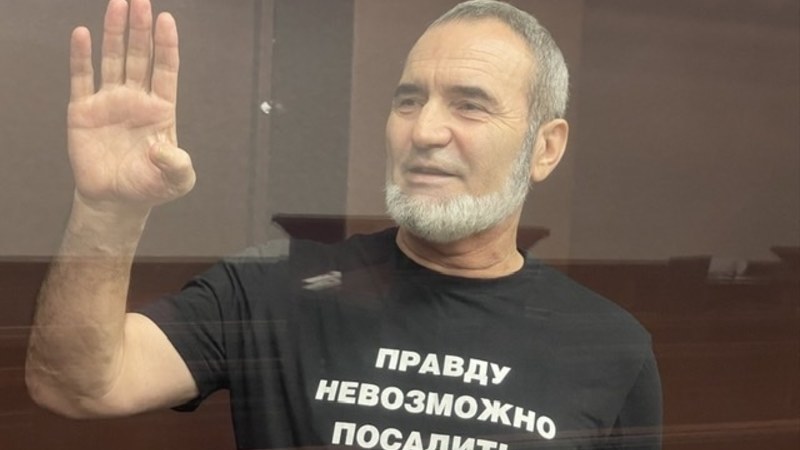
Azamat Eyupov was taken to a prison hospital in Russia on 29 September due to dangerously high blood pressure. The 62-year-old Crimean political prisoner has already had four strokes and has every reason to fear that a fifth could prove fatal, yet has received neither a medical examination, nor any form of treatment. It is hard to know whether the staff in the Chelyabinsk prison colony are always so negligent, or whether they particularly flout their duty when it comes to Crimean Tatar and other Ukrainian political prisoners. The latter is, unfortunately, quite possible. In October alone, Russian prosecutors demanded, and obtained, illegal appeal court rulings overturning two entirely lawful rulings releasing political prisoners Lenur Khalilov, who has cancer, and Oleksandr Sizikov, who is blind and disabled, from serving 18 and 17-year sentences. When it came to Ukrainian citizens, serving politically motivated sentences, the ‘courts’ proved willing to flout Russian regulations, which demanded the men’s release. It is tragically clear that only international pressure can help to force Russia to at least release in prisoner exchanges the above political prisoners and several others, in particular Crimean Solidarity civic journalist Amet Suleimanov, whose lives are in immediate and very real danger.
Eyupov, then 59, first suffered a stroke while held in the appalling conditions of a Russian SIZO [remand prison] in May 2022. It took over a month for his lawyer to obtain agreement for Eyupov to receive an ultrasound scan of his heart and MRI scan of the brain. Although he could not use his right arm, was dragging one leg and had severely impaired speech, all clear symptoms of a stroke, he received no medical care, merely tablets to reduce dangerously high blood pressure. It was thanks to fellow Crimean Tatar political prisoner and civic journalist Ruslan Suleimanov that Eyupov’s condition even became known. Suleimanov carried him around the SIZO on his back, including to the medical unit in the hope of his at least receiving the minimum of medication.
It is telling that, earlier in June, the SIZO medical staff had claimed that Eyupov has ‘osteochrondosis’ (a group of orthopaedic disorders, which, in humans, appear in childhood or adolescence) Eyupov’s lawyer Emil Kurbedinov suggested at the time that this bizarre diagnosis was made to enable the SIZO personnel to avoid providing a more serious (and accurate) assessment of the political prisoner’s condition, one that would be less difficult to ignore.
Russia has already caused the deaths of several Crimean Tatar or other Ukrainian political prisoners, and its prosecutors have just obtained a carte blanche to have Lenur Khalilov die of cancer in pain and in the horrific conditions of a Russian prison colony, and blind Oleksandr Sizikov somehow survive 17 years in a Russian prison colony. The message to all prison personnel, including medical, is that any degree of brutality and torment will go unpunished when directed against Crimean political prisoners.
Azamat Eyupov (b. 12 February 1963) was one of around 20 Crimean Tatars, most of them in their fifties and sixties, who took part in a peaceful picket on Red Square in Moscow on 10 July 2019, calling for an end to ethnic and religious persecution in Russian-occupied Crimea. Although the men simply stood, apart from each other, but in a line, seven were detained and prosecuted under Article 20.2 of Russia’s code of administrative offences with supposed ‘infringement of the established procedure for holding a meeting’. The protest came almost exactly 32 years after Eyupov and other activists from the Crimean Tatar national movement held a large demonstration on Red Square demanding the right to return to their native Crimea after 43 years in enforced exile. That earlier protest was vital in gaining international publicity for the plight of the Crimean Tatars in the Soviet Union.
The protest in 2019 was, almost certainly, one of the reasons why the Russian FSB targeted Eyupov who had also taken part in many other single-person pickets and flash mobs in support of political prisoners, and had regularly attended political court hearings.
It was on 17 February 2021 that Russia’s FSB came for Eyupov on identical charges to those against the Crimean Tatar political prisoners in defence of whom he had come out in peaceful protest. He was added to ‘a case’ which had already resulted in monstrous sentences against three recognized political prisoners from Bilohirsk (Russian Belogorsk): Enver Omerov and his son Riza Omerov, and Aider Dzhapparov. The three were sentenced to 18; 13 and 17 years, respectively, on 11 January 2021, with these sentences upheld by the court of appeal in March 2022. Eyupov was one of six men from different parts of Crimea arrested on 17 February, after ‘armed searches’ which again targeted civic activists. The armed and masked enforcement officers, as always, illegally prevented lawyers from entering, and in several cases, including that of Eyupov, planted the ‘prohibited’ religious literature they then claimed to have found.
Like the Omerovs and Dzhapparov, Eyupov was accused solely of unproven involvement in the peaceful transnational Muslim Hizb ut-Tahrir organization which is legal in Ukraine. The Russian supreme court ruling in 2003 which declared it a ‘terrorist’ organization was deliberately kept secret until it was too late to challenge it, and Russia has never provided any convincing justification for the decision. The FSB invariably designates at least one person as ‘organizer’ of a supposed Hizb ut-Tahrir group, with the charge under Article 205.5 § 1 of Russia’s criminal code carrying a sentence currently of 17-20 years’ maximum-security imprisonment, while others are accused of ‘involvement’ in that group (Article 205.5 § 2). Although arrested almost two years after the other men, Eyupov was accused of having been ‘an organizer’.
All of these ‘trials’ of Crimean Tatar and other Ukrainian Muslims are profoundly flawed and cynical, but Eyupov’s still stands out since his voice was not even on the illicitly taped conversation on religious or political topics which the FSB used as ‘evidence’ against him. As his lawyer Emil Kurbedinov explained, the defence presented proof during the original ‘trial’ that the voice was not Eyupov’s, with this including an interview with the person whose voice had been attributed to Eyupov. This person confirmed that he had been at the meeting and that Eyopov had not. This testimony received backing from two independent phonographic specialists who confirmed that the voice on the tape did not belong to Eyupov, but to the person who had stated that it was his voice.
All of the above was ignored by presiding judge Kirill Kravtsov, together with Alexei Magomadov and Vladimir Tsybylnik from the Southern District Military Court in Rostov. On 19 July 2022, they found Eyupov guilty of the charges against him. He was sentenced to 17 years’ harsh regime imprisonment, with the first three years in a prison, the absolute worst of all Russian penal institutions. On 24 May 2023, the sentence was upheld by the Military court of appeal in Vlasikha (Moscow region.
